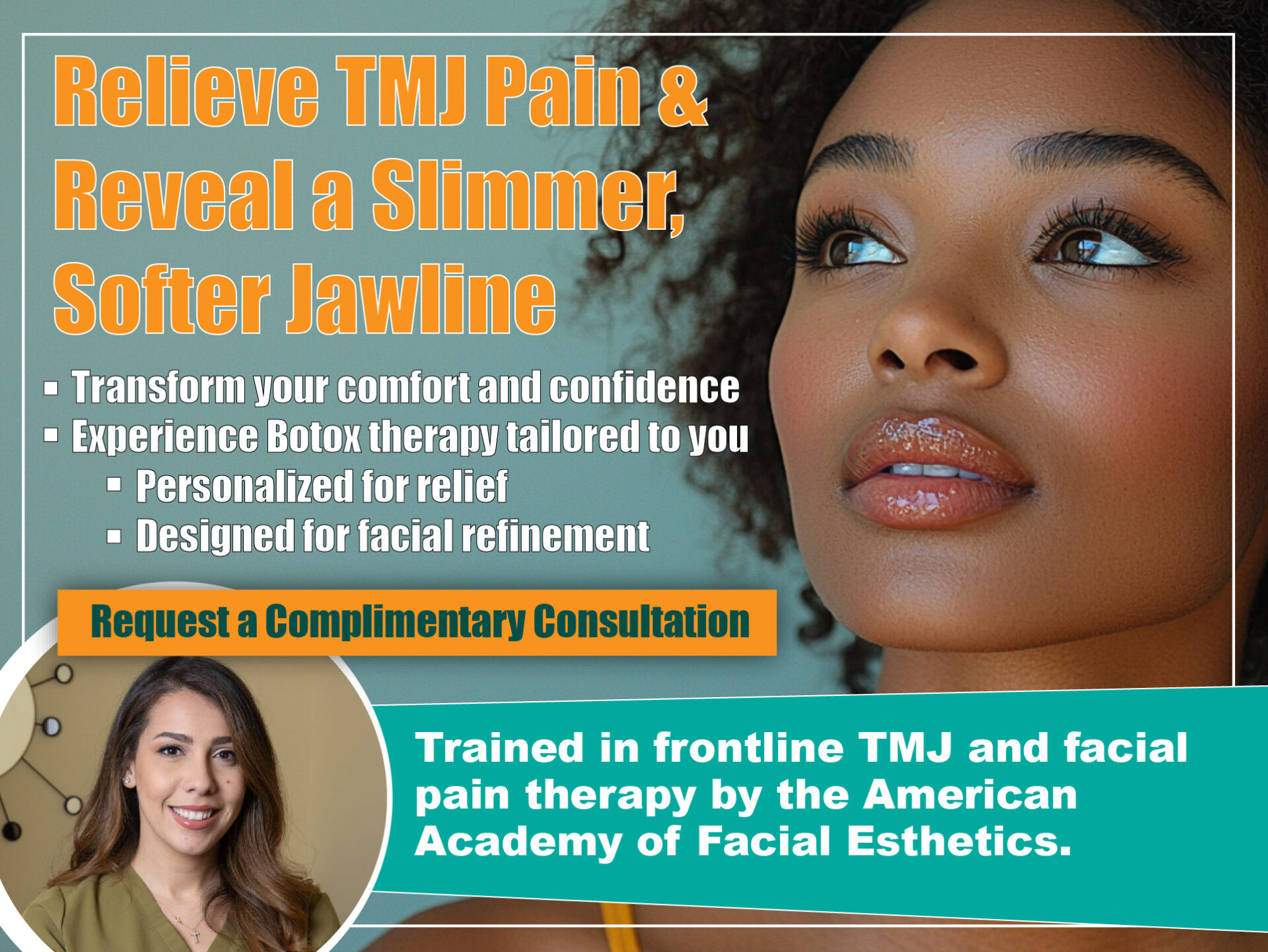
About TMJ/TMD
Have you been experiencing ongoing pain and restricted movement around your jaw bone or muscles, or can you hear a clicking or popping sound while you chew? If so, you should visit our dental practice in Herndon for an examination by one of our top doctors to determine if you are suffering from TMD (temporomandibular disorder). Note that some people refer to this issue as TMJ (temporomandibular joint), however, this actually refers to the jaw joints themselves and not the issue.
Depending on the reasons behind it, some TMD cases can be resolved with conservative at-home remedies such as taking medication, using bite guards, or attending physical therapy. However, some TMJ disorders may require surgery. Your case will be reviewed at your appointment with one of our Herndon dentists and your treatment plan will be recommended for your specific needs.
Symptoms of TMJ Disorders
Some causes of TMJ disorders include:
- An accident or trauma to your jaw area
- Pressure on the joint through grinding or clenching your teeth (stress can cause these too)
- Misalignment of the jaw causing pressure when chewing
- Arthritis in the temporomandibular joints
- Genetics can also affect your likelihood of having a TMD
- Movement of the soft cushion or disc between the ball and socket of the joint
Look out for chronic pain in your joints and muscles around your jaw, ears, and temples. If you experience clicking or popping sounds when opening and closing the mouth this might be an indicator too. This is usually caused by a movement of the disk inside the jaw joint. However, clicking alone isn’t an indicator of TMD, usually if it’s accompanied by pain or limited jaw movement.
Please make an appointment at Herndon Dental Arts to review your aches and pains so that we can create an optimal treatment plan that suits your condition. In the meantime, you can make some temporary changes such as relieving soreness and inflammation by consuming softer foods, taking anti-inflammatory medications, and muscle relaxants, as well as working on ways to relieve stresses as this directly impacts clenching and grinding that can cause or exacerbate TMJ disorders.
If we diagnose you with a more severe case of TMD you may require orthodontic treatment, dental restorations like bridgework, or minor procedures inside the joint such as cortisone injections or lavage (flushing) of the joint.

